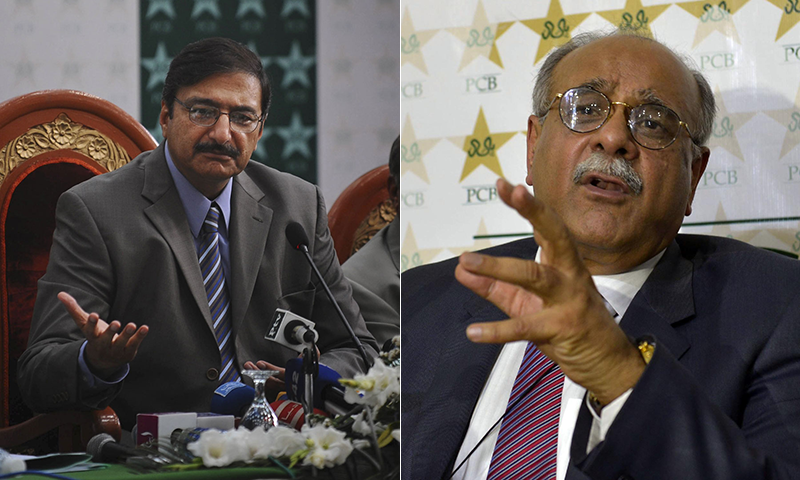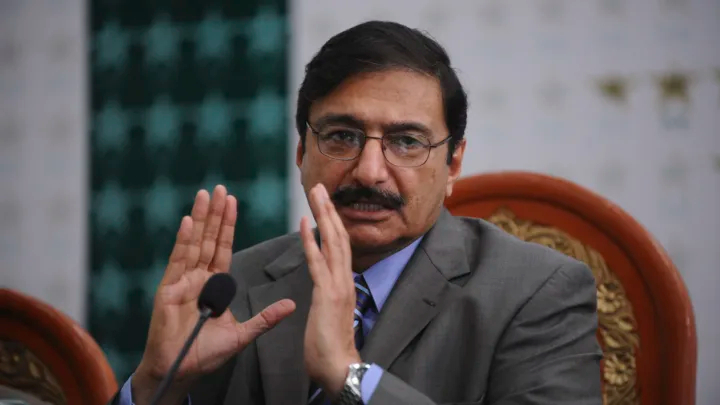The new Pakistan Cricket Board (PCB) Chairman will most likely be named after the election on June 27 and Zaka Ashraf is expected to return as the head of the cricket board.
The PCB’s board will comprise ten members: four regional representatives, four representatives of services organizations, and the two members nominated by the patron/prime minister. All board members, including the chairman, will be appointed for three years.
In a press release, Ahmed Shehzad Farooq Rana, the PCB election commissioner and acting chairman, said: “The election of the PCB Chair will be held in a fair and transparent manner whilst adopting due process and ensuring completion of all legal formalities… on Tuesday, 27 June, at the PCB headquarters in Lahore. The election schedule will be issued after receiving nominations from the departments/service organisations.”
Earlier this week, Ashraf, along with Supreme Court lawyer Mustafa Ramday, joined the board after being nominated by the prime minister. In Pakistan, a prime minister appointee usually becomes the board chairman.
Zaka Ashraf To Comeback After Ending Najam Sethi’s Reign At The PCB Helm
This comes after Najam Sethi, who was in charge of the temporary management team that oversaw the PCB until June 20th, withdrew from the running to be chairman. After Ramiz Raja was fired as chairman and the 2019 constitution was abandoned, the Sethi-led management committee was assigned to revive the PCB’s 2014 constitution and create the board of governors.
Sethi’s list of candidates for the board, however, created a legal tangle because Lahore, Karachi, Peshawar, and Rawalpindi were designated as out of rotation.

Rana rejected Sethi’s nominations in the press release and substituted representatives from Larkana, Dera Murad Jamali, Bahawalpur, and Hyderabad in their stead. The four departments are Sui Northern Gas Pipeline Limited, Sui Southern Gas Company, National Bank of Pakistan, and State Bank of Pakistan.
Sethi had ended Ashraf’s initial term as PCB chairman in 2014. The chairmanship was being contested in court at the time between the two, and it frequently changed hands. Finally, the problem was resolved by dismissing Ashraf and installing Sethi, then-prime minister Nawaz Sharif.
